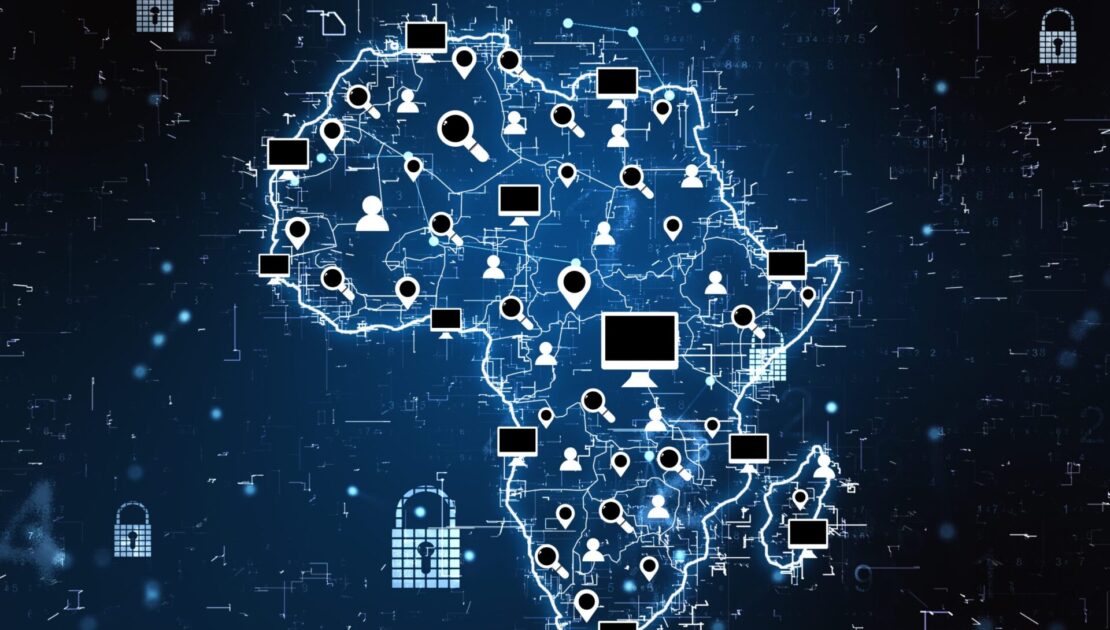[mc4wp_form id=”2320″]
How Africa Can Improve Its Cybersecurity Scope
-
February 10, 2025
- Posted by: Evans Asare

How Africa Can Improve Its Cybersecurity Scope, Especially in Ghana
As the digital landscape in Africa continues to evolve, cybersecurity has become an increasingly important concern. In Ghana, as well as in other African countries, there is a growing need to enhance cybersecurity frameworks to protect against the rising tide of cybercrime, data breaches, and online threats. This article explores how Africa, specifically Ghana, can improve its cybersecurity scope and the advantages and challenges associated with these efforts.
1. Strengthen Cybersecurity Infrastructure
One of the most essential steps Ghana can take is to invest in robust cybersecurity infrastructure. This involves not only upgrading technological tools but also enhancing the digital networks that power the country’s economy.
Advantages:
- Improved national security: A well-established infrastructure will help protect sensitive data from being compromised.
- Economic growth: A safer digital environment encourages investment in the tech sector and enhances online commerce.
Disadvantages:
- High costs: Building advanced cybersecurity infrastructure can be expensive for developing countries.
- Skills shortage: There’s a lack of trained personnel to manage and operate these systems effectively.
2. Implement Comprehensive Cybersecurity Policies
For Ghana to succeed in strengthening its cybersecurity, it must create clear, enforceable policies that guide both public and private sectors. These policies should cover everything from data protection regulations to cybercrime laws.
Advantages:
- Legal clarity: Clear regulations make it easier for businesses and citizens to understand their roles and responsibilities in maintaining cybersecurity.
- International partnerships: Strong cybersecurity policies open doors for collaborations with global organizations, promoting trust.
Disadvantages:
- Bureaucratic hurdles: Developing and enforcing policies can be a slow and challenging process due to political and institutional complexities.
- Resistance to change: Some organizations may be reluctant to adopt new regulations due to concerns over compliance costs and operational adjustments.
3. Promote Cybersecurity Education and Awareness
Educating both citizens and organizations about cybersecurity best practices is vital. Public awareness campaigns can help reduce human errors, such as falling for phishing attacks or using weak passwords.
Advantages:
- Empowered citizens: When individuals understand the risks of cyber threats, they are more likely to adopt preventive measures.
- Enhanced corporate security: Businesses that prioritize cybersecurity training for employees can reduce their vulnerability to attacks.
Disadvantages:
- Slow adoption: Changing attitudes and behaviors around cybersecurity can take time and sustained effort.
- Cost of education: Public campaigns and training programs require significant investment in resources.
4. Establish Public-Private Partnerships
Collaboration between government agencies, tech companies, and private sector organizations is crucial for the development of a secure digital ecosystem. Public-private partnerships can leverage resources, expertise, and innovation to tackle cyber threats.
Advantages:
- Resource pooling: Partnerships can share the burden of cybersecurity investments, making it more affordable for both sectors.
- Enhanced innovation: Working together allows for the development of new technologies and cybersecurity solutions.
Disadvantages:
- Coordination challenges: Aligning the interests of public and private sectors can be difficult, especially when it comes to sharing sensitive information.
- Risk of privatization: Some argue that relying too heavily on private companies could compromise public interests, as profit motives might outweigh security concerns.
5. Create a National Cybersecurity Agency
A dedicated national cybersecurity agency can oversee and coordinate efforts to improve Ghana’s cybersecurity. This agency would be responsible for managing incidents, setting standards, and providing guidance to citizens and businesses.
Advantages:
- Centralized coordination: A single body ensures that all efforts are aligned and managed efficiently.
- Swift incident response: With a dedicated agency in place, Ghana can respond quickly to cybersecurity threats and breaches.
Disadvantages:
- Political interference: The effectiveness of such an agency could be undermined by political influence or lack of independence.
- Bureaucratic delays: A government agency may experience inefficiencies, slow decision-making, and resistance to change.
6. Collaborate with International Cybersecurity Bodies
Ghana should also seek to collaborate with global cybersecurity organizations to learn best practices, share threat intelligence, and ensure that its efforts align with international standards.
Advantages:
- Global expertise: Ghana can benefit from the knowledge and experience of international cybersecurity leaders.
- Enhanced reputation: Collaborating with global bodies boosts Ghana’s image as a responsible digital player.
Disadvantages:
- Sovereignty concerns: Some may perceive international collaborations as compromising Ghana’s control over its own cybersecurity policies.
- Complex integration: Aligning with international standards may require substantial changes to local laws and practices.
Conclusion
To improve its cybersecurity scope, Ghana, along with other African nations, must take a multi-faceted approach. By investing in infrastructure, developing clear policies, promoting education, and forming partnerships, Ghana can build a more secure digital environment. However, these efforts come with their own set of challenges, such as funding, coordination, and political hurdles. The key is to strike a balance between innovation and practical implementation, ensuring that the nation’s cybersecurity strategies are sustainable and effective.

best research tadalafil 2017 Tadal Access cialis free trial voucher
cialis generic timeline 2018: Tadal Access – cialis 5mg price cvs
special sales on cialis: cialis for bph reviews – cialis tadalafil 5mg once a day
https://tadalaccess.com/# cialis experience reddit
ambrisentan and tadalafil combination brands cialis online pharmacy or who makes cialis
http://inamidst.com/rss1.1/validator?uri=http://tadalaccess.com tadalafil liquid review
cialis professional review cialis generic timeline and canadian pharmacy ezzz cialis tadalafil 5mg generic from us